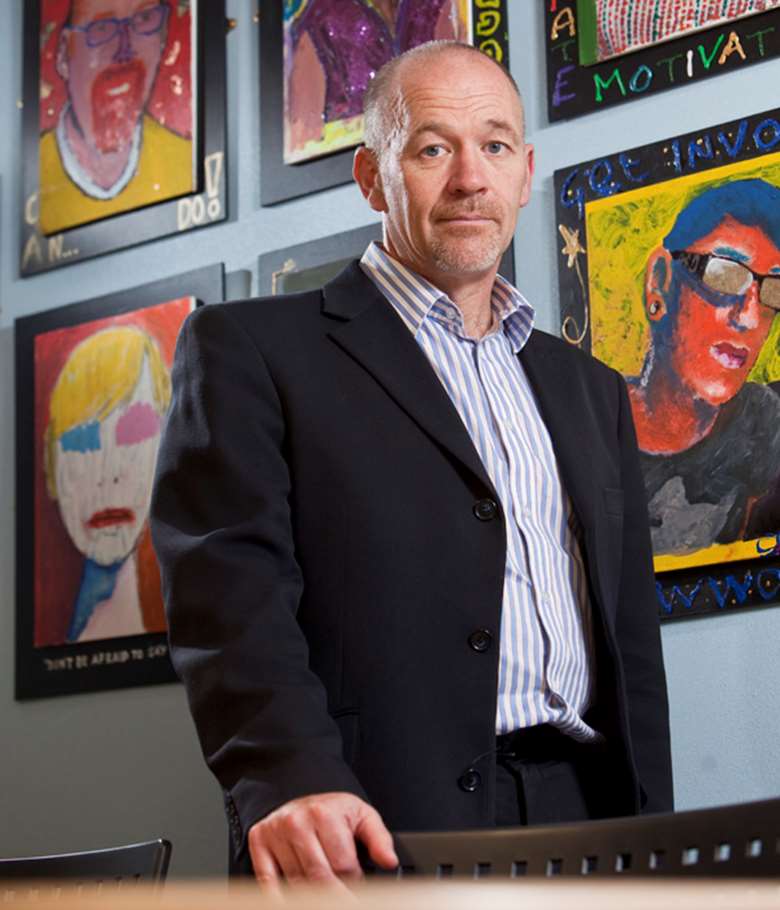A legacy for children's rights: Tam Baillie, outgoing children's commissioner for Scotland
Derren Hayes
Tuesday, March 28, 2017
Derren Hayes talks to Tam Baillie, outgoing children's commissioner for Scotland.

Former youth worker Tam Baillie was first appointed Scotland's children's commissioner in April 2009, and was reappointed in February 2011. His six-year term is due to end in May, when he will be succeeded by Bruce Adamson, legal rights officer at the Scottish Human Rights Commission.
Would you have liked to have carried on as commissioner and what will you do next?
Eight years has been a good length of time to establish myself, get on with the job and leave a legacy behind. The role comes with a broad brief and high expectations. It's appropriate that you're not in the job forever.
I don't know what I'm going to do yet - there's not really a career path for ex-commissioners - but I'm not panicking. I'm not hunting around for a job nor looking to retire yet.
Have you ever felt curtailed by the commissioner's powers being limited?
I'm the most independent commissioner in the UK: my appointment is through [the Scottish] parliament. I am free to speak and that has been my experience.
At the end of the day no one is entirely independent, but my aim has always been to try to influence people.
I've been critical of government but have also given praise where it is due.
For example, children's rights have grown throughout my tenure - there's still a long way to go, but there have been positive developments.
You need to find a balance between constructive criticism and acknowledging where government is doing the right things. I think I've struck the right balance.
Tackling domestic abuse has been a focus of your tenure. Are you leaving things in a better position than in 2009?
I've spent a lot of time trying to tackle domestic abuse but we've still got too many children living in these circumstances.
Police reports of domestic abuse incidents have risen from 35,000 to 60,000. The increase in the figures might be to do with increased awareness.
The traumatising impact of domestic abuse on children is the reason it is so important to tackle this.
Scotland's education system has come in for criticism. What work have you done to address this?
Children ought to have the same chances in life regardless of their background. We produced a report that tried to shed light on children from poor circumstances that are doing well.
It aimed to identify the factors behind high-performing schools. High-quality teaching and leadership were important but so was a sense of agency - children were able to influence the learning environment.
Education has been a bit of a mixed bag in Scotland: our Pisa results are quite worrying [in 2016, Scottish children's reading, maths and science attainment slipped to their lowest ever level] but there's something big happening about rights in our schools.
When I started there was just one school signed up to the Rights and Respect Unicef programme, but now there are 1,200.
Why is it so important to give young people the opportunity to express their views?
Having participation in our schools is a golden rule for me - it is a very significant legacy. The evidence we've produced shows that the quality of relationships between teaching staff and pupils is a major factor in these high-performing schools.
If we're going to get attainment up in poorer areas, we need to get young people participating.
One of your first actions as commissioner was to hold "A Right Blether", a consultation with 74,059 children in Scotland. What issues did that raise and how have you addressed those?
One of the key issues to emerge was around children wanting school toilets improved. Off the back of that we developed the Flushed for Success campaign. Some people were a bit sniffy about it but children and young people highlighted the issue and we have been campaigning on it for a long time.
It is a big health and learning issue and new guidance on school toilets is due shortly.
What other emerging issues are important for young people in Scotland?
Early on I lobbied for 16- and 17-year-olds to be able to vote, and Scotland has taken the lead on that issue. I think it is only a matter of time before that right is extended to all 16- and 17-year-olds in the UK.
The age of criminal responsibility is about to rise from eight to 12 in Scotland, which is a step in the right direction. However, justifiable assault [the defence for parents to smack children] has not been removed from the statute book.
My biggest regret is the number of young people still living in poverty has barely changed in the past eight years, and is forecast to rise over the coming years. The issue needs the Scottish and UK governments and local authorities to act in concert - otherwise we won't get a more equitable society.
There is a lot of political upheaval at the moment, with uncertainty over the future of Scotland's status in the world post-Brexit. Do young people recognise this?
They do. I have just met with a group of young people who were talking about Donald Trump and the impact that a leader who expresses such prejudice has on the world they see.
Children and young people's mental health is influenced by their outlook and some of that is about how hopeful they are about the future and the circumstances they find themselves living in and their stress factors.
Social media is also a factor and not always in a negative sense. There is great potential for knowledge transfer and young people are key to unlocking that. We need to engage with young people on this, as they know this world better than adults.




